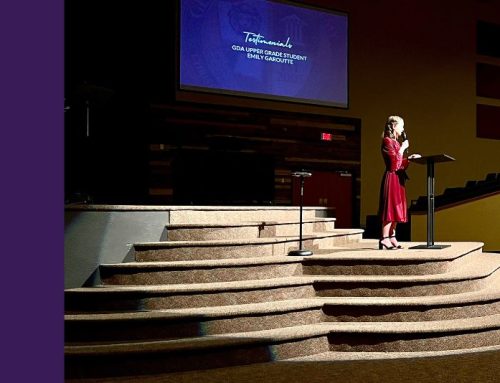
Is there a way to keep the “wonder years” alive? Juli Engel writes about cultivating worship and wonder in Christian classical education.
If raising children was a scary movie, some might suggest the villain would be the “terrible twos.” Anyone who has lived through this season might think they were out of the woods without realizing the “threenager” was right around the corner. Were you your three-year old’s first best friend and in the following hour you were Maleficent or Cruella DeVille? “Threenager” survivors knew their status changed minute by minute. Then, like a South Beach Miami breeze, the delightful “wonder years” (grammar stage in classical education) arrived, and it couldn’t have been more timely. Temper tantrums and mood changes? What were those? Only an imaginative and enthusiastic 4 or 5-year old with plenty of curiosity was front and center.
Sadly, the delightful “wonder years” usually faded as well. However, what if it didn’t have to? Is there a way to keep the “wonder years” alive? If King David sought to dwell in the “temple of the Lord and to gaze upon His beauty all the days of his life” in Psalm 27, shouldn’t we desire this? If the writer in Psalm 63 said that he “lies awake thinking of God, and meditating on Him through the night,” couldn’t we?
Could the secret to keeping the “wonder years” from fading begin by gazing and meditating as the Psalmist claimed? If so, then God has more for us to discover and experience right in this moment!
Gerard Manley Hopkins, a classical writer, states that “the world is charged with the grandeur of God.” If Hopkins is correct, is it possible we haven’t beheld all His grandeur yet? So, how does this beholding, discovering, and contemplating occur in the midst of unrelenting schedules and demands?
If David could carve undistracted time as a King to contemplate God and His goodness, we certainly can. Once we begin to carve out quiet and undistracted time for wonder and contemplation, we might ponder how we didn’t carve it out before. Our Creator established a day of rest once a week. Do we rest in his presence alone without distraction, in addition to our physical rest?
When was the last time we were curious about something and spent time on the back porch at dusk asking our Creator to reveal His thoughts? Have we ever been mesmerized by something in His creation that kept us thinking and questioning Him about it? “Even though the world is broken,” attests classical writer, Douglass Wilson, “[let’s] see that it is good and spend our days knowing and contemplating our Creator.” Do we anticipate how we can spend time with God alone to hear Him speak His mysteries about the world to us?
Contemplation is not only an element of a classical education, but necessary for the “wonder years” to keep from fading. About to destroy that pesky spider web? Contemplate about it with the littles first. Beautiful weather at night? Behold it with your teen and wonder about the sky and its beauty together. When our sons and daughters are taught to contemplate with unhurried time and to wonder about His creation and the Creator, they will soon begin to wonder and contemplate with the King of Kings on their own. Indeed, this is a strong desire of our Savior. What Father wouldn’t love to spend undistracted time with His beloved ones?
Fred Savage, as Kevin Arnold, from ABC’s Wonder Years, ended 6 seasons with these words: “and the thing is… after all these years, I still look back… with wonder.” Will we be able to say the same at the end of our years? The sun has just set and the sky is a brilliant hue of color. I’m heading to the back porch. You?





